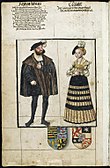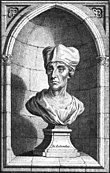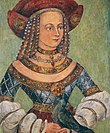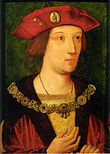
Christopher Columbus was an Italian explorer and navigator from the Republic of Genoa who completed four Spanish-based voyages across the Atlantic Ocean sponsored by the Catholic Monarchs, opening the way for the widespread European exploration and colonization of the Americas. His expeditions were the first known European contact with the Caribbean and Central and South America.

The 15th century was the century which spans the Julian calendar dates from 1 January 1401 to 31 December 1500 (MD).

The 1490s decade ran from January 1, 1490, to December 31, 1499.
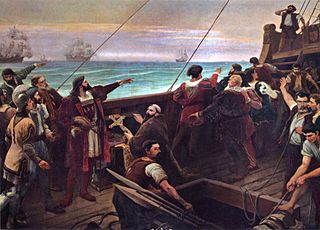
Year 1500 (MD) was a leap year starting on Wednesday in the Julian calendar. The year 1500 was not a leap year in the proleptic Gregorian calendar.
The 1480s decade ran from January 1, 1480, to December 31, 1489.

The 1500s ran from January 1, 1500, to December 31, 1509.

Year 1506 (MDVI) was a common year starting on Thursday of the Julian calendar.

Year 1515 (MDXV) was a common year starting on Monday of the Julian calendar.
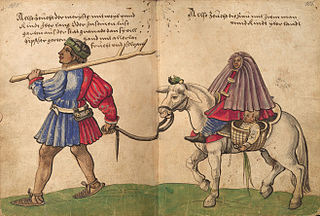
Year 1501 (MDI) was a common year starting on Friday in the Julian calendar.
Year 1496 (MCDXCVI) was a leap year starting on Friday of the Julian calendar.
1440 (MCDXL) was a leap year starting on Friday of the Julian calendar, the 1440th year of the Common Era (CE) and Anno Domini (AD) designations, the 440th year of the 2nd millennium, the 40th year of the 15th century, and the 1st year of the 1440s decade. As of the start of 1440, the Gregorian calendar was 9 days ahead of the Julian calendar, which was the dominant calendar of the time.

Diego Velázquez de Cuéllar was a Spanish conquistador and the first governor of Cuba. In 1511 he led the successful conquest and colonization of Cuba. As the first governor of the island, he established several municipalities that remain important to this day and positioned Cuba as a center of trade and a staging point for expeditions of conquest elsewhere. From Cuba, he chartered important expeditions that led to the Spanish discovery and conquest of the Aztec Empire.

Francisco de Bobadilla was an official under the Crown of Castile and a knight of the Order of Calatrava. He was also the nephew of Beatriz de Bobadilla, marchioness of Moya and of Peñalosa, a patron of Christopher Columbus and close friend to Queen Isabella. He was sent to the island of Hispaniola as a judge, where he arrested Columbus for official misconduct. He served as Viceroy from 1500 until 1502. He is often mistaken for his uncle with whom he shares a name, Francisco de Bobadilla y Maldonado.

Diego Columbus was a navigator and explorer under the Kings of Castile and Aragón. He served as the 2nd Admiral of the Indies, 2nd Viceroy of the Indies and 4th Governor of the Indies as a vassal to the Kings of Castile and Aragón. He was the eldest son of Christopher Columbus and his wife Filipa Moniz Perestrelo.

Bartholomew Columbus was a Genoese explorer and the younger brother of Christopher Columbus.

Frey Nicolás de Ovando was a Spanish soldier from a noble family and a Knight of the Order of Alcántara, a military order of Spain. He was Governor of the Indies (Hispaniola) from 1502 until 1509, sent by the Spanish crown to investigate the administration of Francisco de Bobadilla and re-establish order. Ovando "pacified" the island by force, subduing native Americans and rebellious Spaniards, with disorderly colonists being sent back to Spain in chains. He implemented the encomienda system with the native Taíno population.

Between 1492 and 1504, the Italian navigator and explorer Christopher Columbus led four transatlantic maritime expeditions in the name of the Catholic Monarchs of Spain to the Caribbean and to Central and South America. These voyages led to the widespread knowledge of the New World. This breakthrough inaugurated the period known as the Age of Discovery, which saw the colonization of the Americas, a related biological exchange, and trans-Atlantic trade. These events, the effects and consequences of which persist to the present, are often cited as the beginning of the modern era.

The Captaincy General of Santo Domingo was the first Capitancy in the New World, established by Spain in 1492 on the island of Hispaniola. The Capitancy, under the jurisdiction of the Real Audiencia of Santo Domingo, was granted administrative powers over the Spanish possessions in the Caribbean and most of its mainland coasts, making Santo Domingo the principal political entity of the early colonial period.

The Columbian Viceroyalty, Viceroyalty of the Indies or First Viceroyalty in the Indies is the name that designates the number of titles and rights granted to Christopher Columbus by the Catholic Monarchs in 1492 on the lands discovered and undiscovered, before embarking on his first trip that culminated in the colonization of the Americas.
